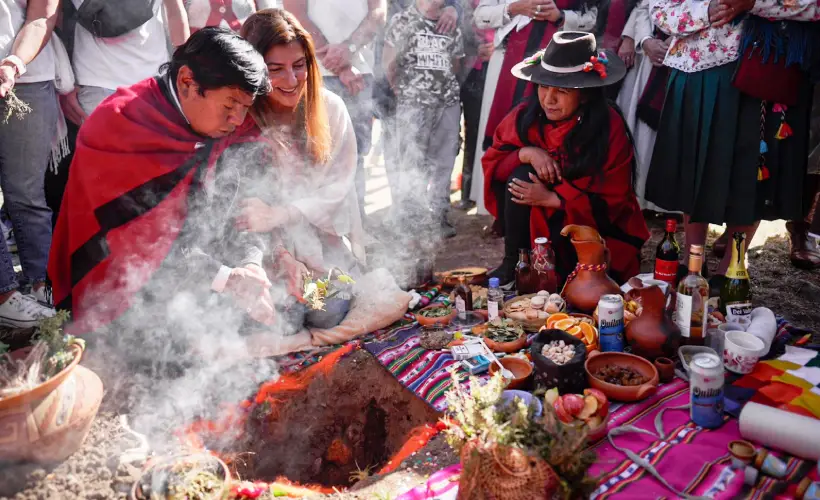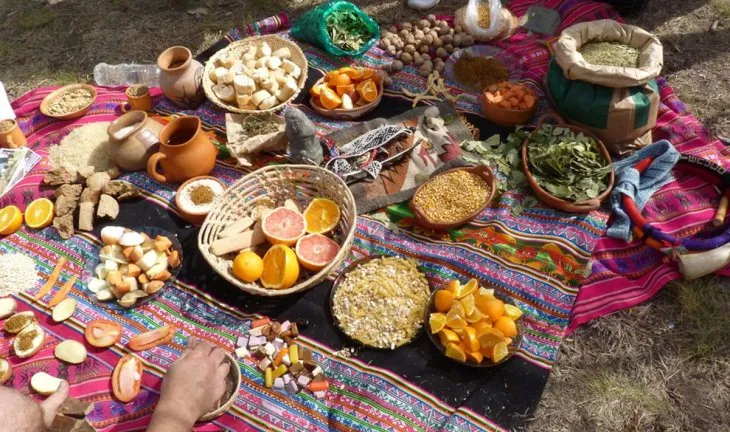Pachamama is Mother Earth in the Andean worldview. She does not only represent the soil or nature, but is seen as a sacred and living being, giver of life, food, and balance. For the Quechua and Aymara peoples, honoring Pachamama is part of their identity and way of understanding the world.

When is Pachamama Day celebrated?
Every August 1st, the Andean communities of Peru, especially in Cusco celebrate Pachamama Day. This date marks the beginning of the agricultural month and is considered the ideal time to give thanks for the harvests and ask for protection of new crops.
Why is this celebration important?
For the Andean communities, August is a sacred month. It is believed that Pachamama “opens her mouth” during this time, and so it’s vital to feed her, care for her, and pay homage. It’s not just a ritual, but a way to maintain the spiritual bond between human beings and nature.
How is the Pachamama ceremony performed in Cusco?
The traditional ceremony, known as “payment to the earth” or “offering to Pachamama,” is carried out with the guidance of a paq’o (Andean sage or spiritual guide). These ceremonies can be private or open to the public and are held in sacred places such as:
- The Sacred Valley of the Incas
- The mountains or apus (tutelary spirits)
- Communities like Chinchero, Pisaq, or Sacsayhuamán
Elements of the offering
Coca leaves, corn, chicha, sweets, colored wool, aromatic herbs, wine or aguardiente, among others, are used. Everything is carefully arranged on a piece of paper or Andean cloth, forming a kind of ritual “mesa” (table), which is then buried as a symbolic offering to the earth.

Ritual and purpose
During the ceremony, prayers are said in Quechua or Spanish, permission is asked from the apus, and thanks are given for received blessings. Petitions are also made for family well-being, health, protection, a good harvest, spiritual harmony, and more.
Can I participate as a visitor?
Absolutely! Many cultural centers and tour agencies in Cusco offer the opportunity to experience this tradition respectfully, guided by local experts or spiritual leaders. It is a deeply symbolic activity that allows travelers to authentically connect with Andean spirituality.
Recommendations if you’re going to attend the ceremony
- Participate with respect and an open mind
- Avoid taking photos during the ritual without permission
- Listen to the explanations provided by the guide or paq’o
- If you like, you can bring your own symbolic offering (sweets, fruits, coca leaves)
- Wear comfortable clothing, a light jacket, and sunscreen if the ceremony is outdoors
Did you know…?
- Pachamama Day is also celebrated in Bolivia, Argentina, Ecuador, and northern Chile
- In some communities, people “feed the earth” by burying a small portion of their daily meal
- More and more Peruvians in urban areas are reviving this tradition as a sign of respect for the environment and ancestral spirituality